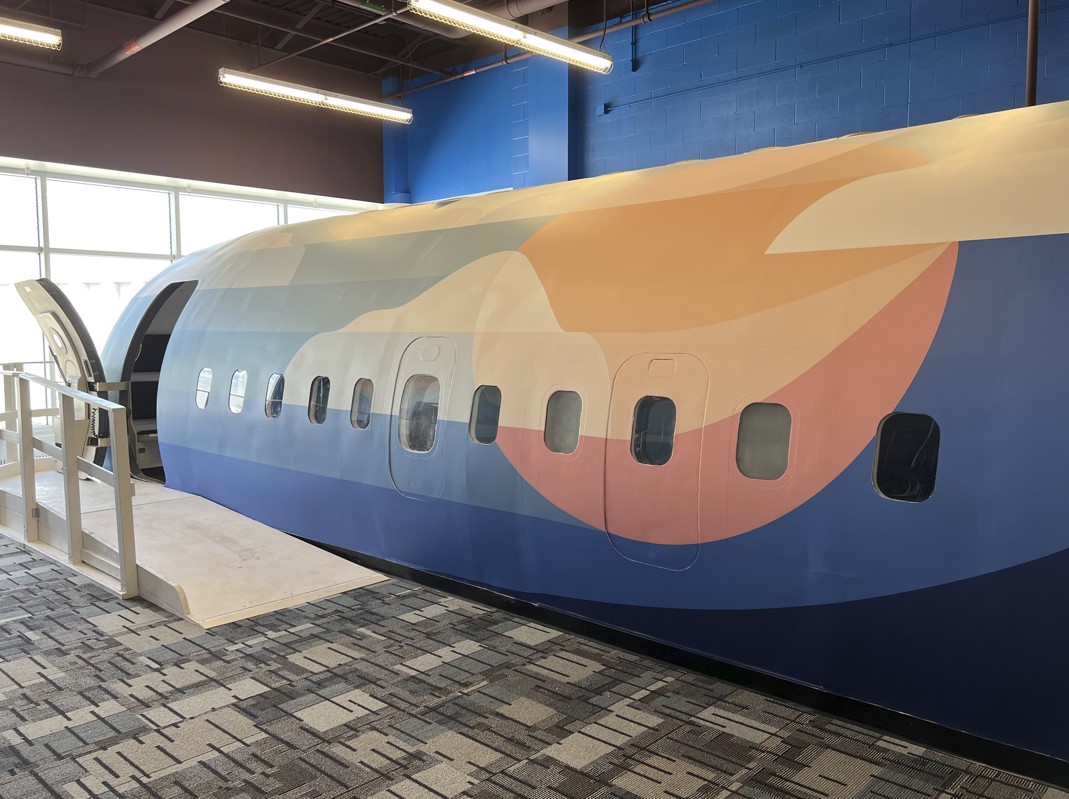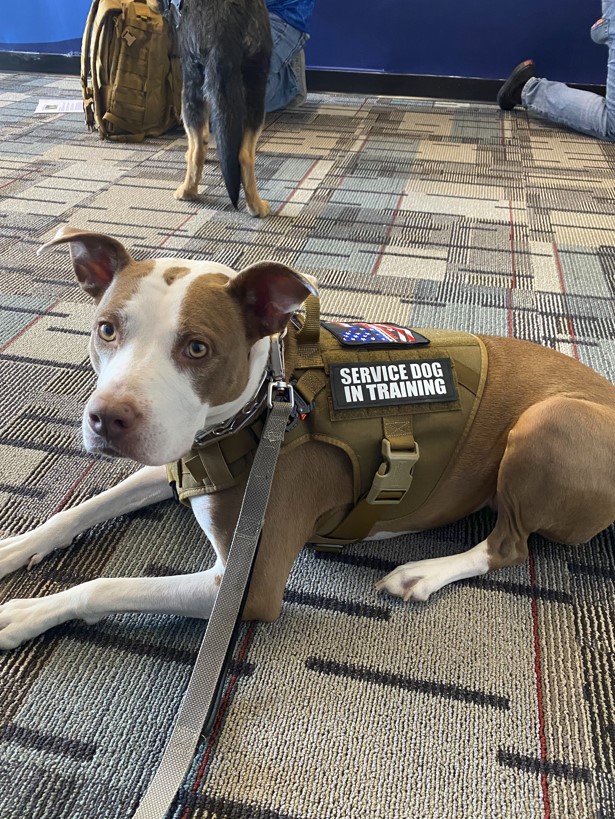
(This is a story we first wrote for NBC News)
Long delays, rampant cancellations, and packed planes have turned air travel into an endurance sport for even the most seasoned travelers. And the challenges can be even greater for the more than 25 million Americans with disabilities that make travel difficult even in ordinary times.
A handful of airports, airlines, and community groups have made an effort to provide certain flyers the opportunity to navigate security, crowded airport terminals, and the boarding process beforehand.
But such programs are limited, and the industry continues to have a poor track record in transporting wheelchairs and scooters and providing reliable and consistent service to passengers with additional needs such as mobility and physical issues as well as sensory and cognitive disabilities.
Minneapolis-St. Paul International Airport is out to change that.
In an industry first in May, the airport — in partnership with Delta Air Lines — installed a mock airplane cabin on-site to give flyers with a wide range of special needs an opportunity to become familiar with a realistic aircraft cabin.
“Being able to test out an airplane cabin could help people who have never flown, who use wheelchairs, older adults, people with autism, and anyone who has any reservations about flying,” said Eric Lipp, executive director of the Open Doors Organization, which works with businesses on accessibility issues, “It will recognize that everyone’s needs are different and encourage more people to fly.”
In the two years preceding the pandemic, nearly 15 million people with disabilities traveled by air, generating $11 billion in revenue for airlines. That was up from $9 billion in 2015, according to a report from the organization. And, Lipp said, “The true economic impact is potentially double since people with disabilities typically travel with one or more other adults.”
The 33-foot-long cabin had been used to train Delta’s in-flight teams in Atlanta and includes a (nonworking) lavatory and 42 standard coach seats from a retired Boeing 737. Delta shipped it in pieces to the Minneapolis airport, where it was reassembled in an unused retail space. Airport carpenters added cutouts so that every row has a window, and local youth artists painted the cabin and the surrounding walls with blue skies and landscape to make it sensory-friendly.
“My 5-year-old son, Remi, has autism and I felt it was important for him to experience the airport before the day we actually had to travel,” said Cassandra Welch, who brought him to the mock cabin recently. “Remi did well and sat nicely in his seat and was able to see what the cabin looked like, and what the airplane bathroom looked like.”
Welch also brought along her family and some relatives. “We will be traveling together in August, so it was great that we could all be there for this experience.”
Tiffany Owen, a first responder, also wanted to give her traveling companion a chance to get acquainted with flying before she booked a trip. Hazy, a rescue pit bull, is Owen’s service dog and helps her manage stress and anxiety. The visit was arranged through Soldiers 6, a local nonprofit group that provides service dogs to military veterans and first responders in Minnesota.

“I’ve flown before, but Hazy has never been on an airplane,” she said. But Hazy quickly got the hang of it. ”When we walked in, Hazy wanted to have her own seat next to me,” she said. “I had to train her to realize she’s on an airplane and would be sitting on the floor between my legs.”
Owen said it means a lot to her that the airport “has gone to great lengths to make sure that both me and my service animal feel comfortable, and that we can go back to the airport again for more training if we need to.”
The mock cabin, which is free and available by appointment, isn’t just for flyers.
Airline personnel, flight crews, and companies that provide service to passengers who need help getting to or from their airplane seats have access to the cabin for training, too.
The Minneapolis-St. Paul branch of Prospect Airport Services, which provides wheelchair attendants and other services for airlines at airports across the country, now runs weekly staff training sessions in the mock cabin. There is a big focus on transferring passengers in wheelchairs to their seats, which can be a complicated and delicate process.
Loretta Halligan, the company’s general manager at the Minneapolis airport, said that before the mock cabin arrived, orientation for new passenger service assistants mainly took place in a classroom, with a wheelchair, an airline seat, and a video. The actual training in how to transfer passengers didn’t begin until new hires could shadow someone with experience.
“Now, new employees can start practicing lifting a person on and off an aisle chair on a ‘real’ plane right away,” she said, adding that watching a video “is nothing compared to having that hands-on experience during your first day of training.”
That training could have been invaluable during the earlier days of the pandemic, “when social distancing made it difficult for people to be lifted and transferred to vehicles or planes,” Lipp said. “Guiding people who are blind also became more difficult with social distancing.”
Although the mock cabin has been open for just about two months, Phil Burke, assistant director of customer service at the airport, says sessions are getting booked up far in advance. He also said airports in Houston, Denver, and Kansas City, Missouri, have been in touch with him and are planning to install mock airplane cabins in their terminals, too.